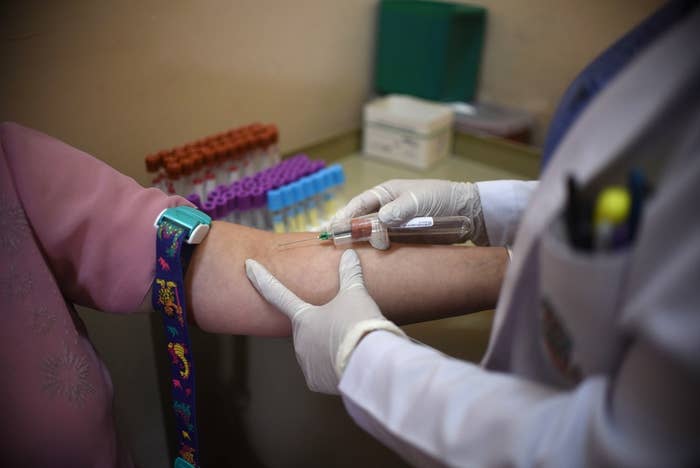
Pregnant women face "unacceptably long delays" in learning Zika test results in some U.S. states and territories, a federal health official said on Sunday.
Linked to severe brain birth defects in up to 29% of cases in pregnant women, Zika virus has now spread to 37 countries and territories in the Americas. At an American College of Obstetricians and Gynecologists (ACOG) colloquium on Zika in Washington D.C. over the weekend, doctors complained of long test result waits to tell pregnant patients — ones who face agonizing decisions about continuing a risky pregnancy — whether they had the virus.
"In some places there are still unacceptably long delays," said Denise Jamieson, the U.S. Centers for Disease Control and Prevention (CDC) chief of reproductive health. "This is not a test you can just check off on a form and send to a lab."
The Zika tests approved by CDC checks for antibodies to the virus in a blood sample, and can detect the virus four to five days after an infection and up to 12 weeks afterward. Two kinds are readily available, with results checked by state labs, a nationwide lab network, the CDC, and some Defense Department labs.
Jamieson spoke in response to a complaint about test result backlogs from a physician from the U.S. Virgin Islands, where the virus is active in mosquitoes, and 566 pregnant women have been tested for the virus. Three have been confirmed to have the virus there, according to the U.S. Virgin Islands Department of Health.
"It is not where it should be, you're exactly right. We need more testing," Jamieson said. Tests for pregnant women are the highest priority at the CDC's lab in Fort Collins, Colorado. Wait times largely vary from state to state, she said, depending on the strength of state labs.
"Many of us are having trouble getting the lab's (results) back in a timely manner," said obstetrician Laura Riley of Massachusetts General Hospital in Boston, who spoke at the colloquium. "We send the test off and it doesn't come back for six weeks or seven weeks."
Because Zika can apparently trigger birth defects even late in a pregnancy, women who suspect they have been infected by the virus face a short time window for deciding on continuing their pregnancy, Riley said. They also face a battery of potentially unnecessary tests while they wait, including amniocentesis, which carries its own risks. One of her recent patients, for example, had decided not to continue her pregnancy if she tested positive for the virus. But as the woman was nearly 24 weeks pregnant, when abortion becomes illegal in Massachusetts, she faced little time in waiting for her test results, which finally proved negative.
"This is a costly disease, even for those who don't have it," Riley said.
Most states are now performing Zika tests on their own now, according to CDC's Benjamin Haynes, with all positive results sent to the federal agency for confirmation. "Timing on these test depends on the number and types of test required," Haynes said by email. "A positive result on one test may take only a day to perform, but if multiple tests are required, it may take two weeks."
Travel-associated Zika cases have been reported in more than 500 people from more than 40 U.S. states, with the largest number in Florida, New York, and Texas. In April, patients in Washington reported waits as long as eight weeks for Zika test results, with an average test taking three weeks for results. Public health departments in New York and Los Angeles have warned women of delays in tests results earlier in the year.
Spread by mosquito bites and sexual transmission, Zika virus has been conclusively linked to thousands of microcephaly cases in Brazil, and smaller numbers of cases in Colombia and Panama. Puerto Rico reported its first Zika-linked case of the shrunken brain and skull birth defect on Friday. Microcephaly has also been reported in cases involving pregnant women travelers to South America.
UPDATE
This story has been updated to clarify that two Zika tests are available to doctors.
